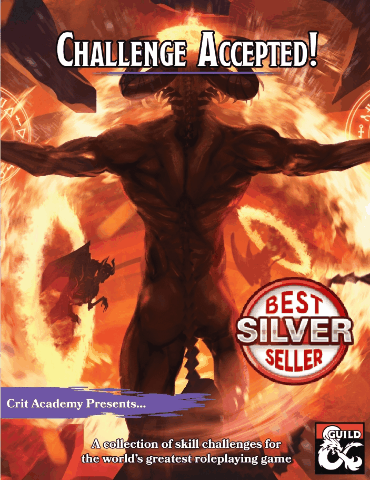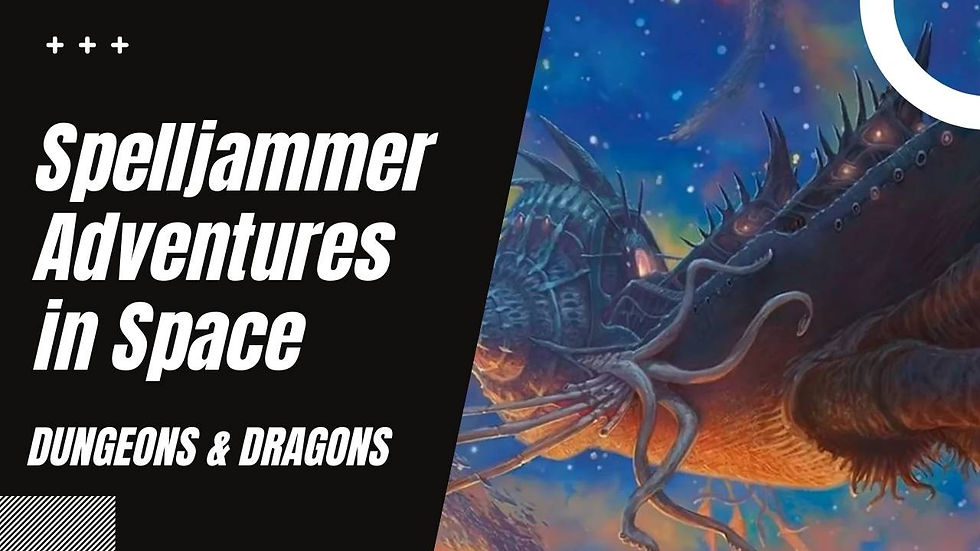6 Common DMing Mistakes
- Justin Handlin

- Jun 1, 2020
- 4 min read

Let's be honest, being a Dungeon Master can be some tough work. You easily spend significantly more time away from the table preparing for the game than the players do. But, at the same time its also the most rewarding aspect of the game. Sure they players get to play a character of their creation, but we get to play dozens of characters! We design complex labyrinths, engaging and motivated villains, and mind blowing puzzles and encounters. As DM we are masters of the world and facilitators of the game, but we aren't infallible. Below is a list of what I believe to be 10 Common Dungeon Master Mistakes.
Not Preparing Enough: Preparing for a session is time consuming, but it is far better than showing up to a game and reading the adventure as your running it. While you "can" do it this way, it can easily lead to errors in judgement, forgetting important details such as a critical clue or NPC, and most importantly...the players sitting and waiting for you to figure out what's going to happen next. This can be avoided simply by reading a bit ahead of time. Take a note card and build bullet points to help you remember. While there are some DMs who can get away with not reading in advance, the lack of prep can easily be seen by your players. This is especially obvious when they are waiting for you to pick out monsters for an encounter. It's just best avoided by being prepared.
Trying to Defeat the Players: The game of D&D is not about the DM vs the Players! I have seen this play out many times, and it is never good. Because the DM controls everything, this kind of mentality can lead to unnecessary stress and drama at the table. Whether this is fudging die rolls or changing DCs in the monsters favors, or unfairly punishing players by having monsters and traps that always counter the player characters. Try to avoid this, its ok to challenge the players and to try and do the best to the monsters ability to conquer its foe. The secret to a challenging but fair encounter is to always remember that you're secretly on the players side!
Too Much/Little Loot: 5th Edition D&D was designed for low magic items. As DMs we can often fall into a situation where we feel the need to give out magical loot at every turn. But this can quickly lead to a power creep in your player characters, which in turn makes it more difficult for you as the DM to build good challenging encounters. Likewise, if you don't give the player characters any loot at all, they start to wonder why they were adventuring to begin with. So, if you find yourself in this situation, consider giving items that require a bit of work on their part. For example, maybe a sword found is one said to be used by a glorious knight to slay a red dragon. Unfortunately, the scabbard has been lost, and without it, the sword has lost most of its power. This longsword is acquired is just a +1 Longsword, but if they can quest and find the scabbard, then its magic will return, and it will bathe in the flame of the dragon once again(a flametongue).
Inappropriate Challenges: Balancing encounter difficulty can be a bit of a challenge for any DM. If you design too many encounters and that are just too easy, then the victory is hollow, and often not fun. On the other hand, if you make the combat too challenging, and the player characters find themselves running away too often, then they feel like that you are being unfair to them. Its ok to toss a few easy challenges, here and there, followed up by some hard ones, even impossible to win encounters, so long as you're constantly changing it up. Impossible encounters for example can be just leave the players feeling unhappy about the game and stressed, but if its clear that there are other options for them to take, bribing, retreating, negotiation, etc. Then they are less likely to get stressed, or feel empty. One of the worse things you can do is design an encounter that doesn't tie to ANY of the skills the player characters have. Setting up an infiltration mission with a group of paladins who have disadvantage on stealth, is a horribly inappropriate challenge in most cases. When building your encounters, ensure the challenges are appropriate for the group.
Heads in the Books: One of the biggest killers of a new group playing for the first time is learning all the rules. This can easily lead to the DM spending most of the time with their heads in a book. This is not fun for anyone! It slows the game to where the players are just sitting around. Instead, consider utilizing the D&D advantage/disadvantage system to your..well advantage. When unsure of a rule, just make a call! If its favorable to the players, grant them advantage on a check, if its unfavorable use disadvantage. This keeps the game flowing. Quickly write down the details and look it up on a break or after the game. Once you better understand the rule, let the players know so that everyone is on the same page moving forward.
Balancing Player Time: One of the hardest things to do is ensure every player gets the spotlight. Depending on the group this could more or less difficult. With a player who is very outgoing, they can overshadow the quite player in the corner. It's the DMs responsibility to ensure that every player gets an opportunity to shine. If a player chooses not to shine, that is ok, as long as you're making an effort to get their input and giving them a chance to be involved.















Comments